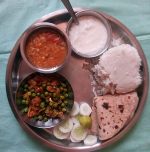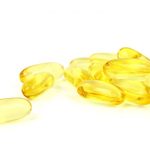Nourishing your body through pancreatic cancer treatment

A healthy diet becomes essential during pancreatic cancer treatment because the body needs extra support to manage stress and maintain strength.
Patients often face digestive challenges; therefore, a mindful approach to nutrition can improve energy, recovery and overall well-being.
First, monitor your weight closely. Weight loss is common, yet excessive loss weakens immunity and tolerance to treatment.
Weigh yourself weekly, and consult your care team if you lose more than one or two pounds per week. Early support helps you maintain steady nutrition.
Hydration also matters. Aim for about eight glasses of fluid per day. Drink liquids an hour before or after meals to avoid feeling too full.
Choose nourishing beverages, and avoid excess caffeine or alcohol because these can lead to dehydration.
Eating small, frequent meals supports steady energy. Try five to six meals every three to four hours.
This approach helps manage nausea and low appetite. Include high-protein foods in every meal to repair cells and support immunity.
Choose lean meats, eggs, nut butters, beans, tofu, low-fat dairy or protein bars.
If solid foods become difficult to tolerate, consider liquid supplements. Protein drinks, pureed soups, smoothies and yoghurt-based shakes provide calories with less effort. Bone broth can also add nutrients to soups.
Digestion may change during treatment. Soft, chopped or boiled foods are easier to handle.
Meanwhile, avoid heavy foods such as red meat, pork or raw vegetables when your digestion feels strained.
Whole grains offer steady energy and fibre. Include oatmeal, brown rice, whole grain breads and quinoa.
Colourful fruits and vegetables add antioxidants that support healing. Aim for at least five servings per day.
Healthy fats such as olive oil, nuts, seeds, avocado and fatty fish provide energy and protect organs. However, avoid fried or greasy foods because they may upset your digestion.
Limit sweets because they may cause blood sugar spikes and offer little nutritional value.
Watch for bowel changes as well. Report symptoms such as diarrhoea or bloating to your care team.
They may recommend pancreatic enzymes, which can improve nutrient absorption and reduce discomfort.
Finally, stay active. Gentle movement boosts appetite, mood and overall strength.
Even light activity can help you enjoy meals and maintain a healthier routine, without costing a single rupee.
Image from Pxhere (Free for commercial use / CC0 Public Domain)
Image Published on October 02, 2018
Image Reference:
https://pxhere.com/en/photo/1530223









